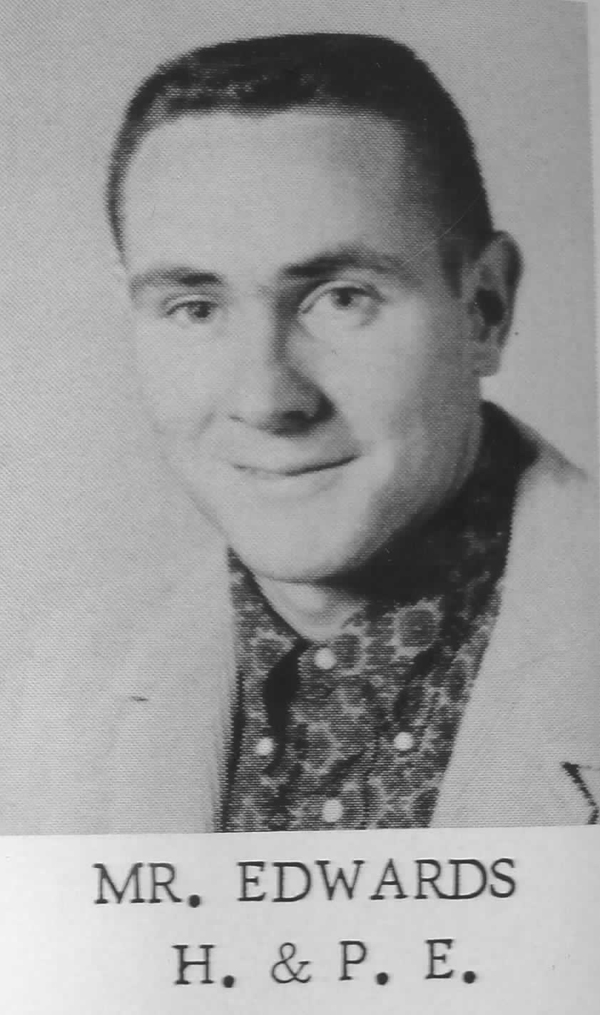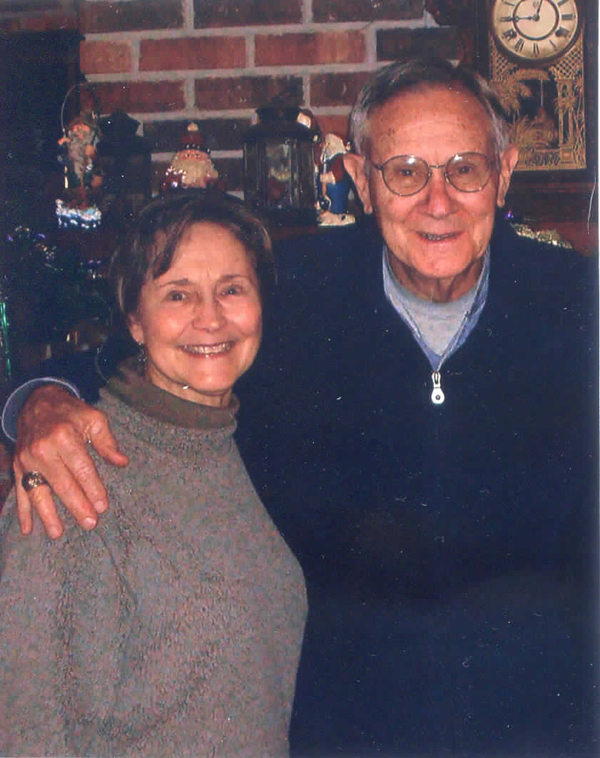By |
By Elva Jo Crawford
When Vannie Edwards graduated from Central High in 1954, his plans were to graduate from college and eventually be a coach in one of the major sports, like football. He says that only the Lord could have written the script for the amazing and unbelievable series of events that only ten years later would have him coaching the United States Women’s Gymnastics team in the 1964 Olympics in Tokyo, or managing the 1968 and 1972 Women’s Olympic Gymnastic Teams in Mexico City and Munich, and eventually coaching women’s gymnastics at the college level.
His own college studies began at LSU but he says his grades were not good enough to stay. So he enrolled in a junior college, Southwest Mississippi Junior College in Summit, Mississippi. Then he transferred to Southeastern Louisiana College (now Southeastern Louisiana University) and got his bachelors degree in Physical Education and Science.
As a new college graduate his first job was teaching physical education at Prescott Junior High School in Baton Rouge to 7th, 8th, and 9th graders. Vannie expected that he would start coaching right away in one of the mainstream sports, but since this teaching job started in the middle of the school year, those coaching positions had already been taken. So he taught physical education only.
In addition to regular classroom teaching duties, faculty at Prescott Junior High were each expected to sign up for participation in at least one extracurricular activity. Vannie says that he and some of the other physical education teachers didn’t take this requirement very seriously and thought that perhaps they would be exempt since they taught P.E. So they did not sign up. But the guidance counselor at Prescott thought otherwise. She would have no exceptions to participation in extracurricular activities by any of the faculty.
When she found out that Vannie had not signed up, he was called into her office where she made it clear to him that he would be participating in an extracurricular activity. He says that even though this lady guidance counselor was small in stature, she had the resolve and strength of voice as large as an army drill instructor. She was clearly devoted to her students and to making sure that there would be faculty support and proper oversight of student activities outside of the classroom. She informed Vannie that since he had not made a participation choice earlier, that there were now only three activities left to choose from: music, drama, and gymnastics. So he chose gymnastics, a sport he knew nothing about. She told him, “Mr. Edwards, you will meet three times per week with these students.” Of course, his answer was “Yes ma’am.”
And meet three times per week with his students he did – and more. This sport that he had previously known nothing about became an absolute obsession to him. He organized boys’ and girls’ teams and competed with them. Before his tenure was over at Prescott Junior High, the boys’ team had won the only national junior high school gymnastics competition in the United States at that time. The girls’ team won the Louisiana State High School girls’ gymnastic competition.
As his involvement in gymnastics grew, Vannie had gotten to know a member of the United States Olympic Committee who came to Baton Rouge in 1961 to do a national gymnastic clinic. By that time, Vannie had a gymnastics club in Baton Rouge and students from other schools and other parts of Louisiana were coming to him for training. In 1963, one of his students from Port Allen, Janice Landry, made the Pan American Women’s gymnastic team. Another of his students, Janie Speaks, would make the 1964 US Women’s Olympic Gymnastic Team.
Vannie was still teaching at Prescott Junior High School when he received and accepted the nomination to coach the US Women’s Gymnastic Team in the 1964 Olympics. He says in the 1960’s women’s gymnastics was not as popular as it is today and there were only about 700 women gymnasts in the entire United States. Now, there are more than 700 in Louisiana alone. During the years from 1964 through 1972, the US Women’s Gymnastic Team’s Olympic over-all team standings rose from 9th in 1964 to 6th in 1968, then to 4th by 1972. Ranking 4th in the ‘72 Olympics meant that even though very close, the team did not make the medal stand. As disappointing as that was, unbeknownst to the athletes and coaches, there was a much greater tragedy brewing that year in Munich.
A group of terrorists called “Black September” was making plans to storm the Olympic Village in Munich and take Israeli Olympic athletes as hostages for ransom. The gymnastics portion of the Olympics was over after the first week of Olympic competition. Being homesick to see his young son play in his peewee football game, Vannie left the Munich Olympics after the gymnastics competition and headed home. Only two hours after he left the Olympic Village, the terrorists stormed the grounds and took 12 members of the Israeli Olympic team as hostages. Only one of the twelve hostages was able to escape. The other 11 were killed by the terrorists. Two were killed in the Olympic Village itself and nine were killed on an airport runway in a botched rescue attempt. Vannie’s plane out of Munich had landed in London’s Heathrow Airport before he knew anything of the tragedy. Thank God all the Olympians this summer were able to compete in safety.
After the 1964 Olympics, Vannie left Prescott Junior High and moved to Shreveport to coach at Centenary College where he served for a total of 13 seasons (1964-1969 and 1977-1985). Under his coaching, Centenary became a national powerhouse in women’s gymnastics with more than 30 women in Centenary gymnastics selected as All-Americans. His winnings record there was 86 and 6. Eventually, he was inducted into the USA Gymnastics Hall of Fame (1986). He also taught at both his alma maters, Southwest Mississippi Junior College and Southeastern Louisiana University and authored a textbook on tumbling before retiring from teaching and coaching gymnastics. One of his former students was Dede Breaux, current coach of the LSU Women’s Gymnastics team.
Both Vannie and his wife, Bobbie, retired in 1993. They have lived and worked very full lives since retirement. Besides keeping up with their children and grandchildren, and their local church, both have worked and volunteered in a variety of programs that help adults and teenagers become free of drugs and alcohol. They currently live in Arkansas and work with “Celebrate Recovery”, a Christian-based 12 step program patterned after the Beatitudes. It is for adults wanting to get off drugs or alcohol. They also volunteer at an adolescent unit for treatment of drug and alcohol addictions. Even though Olympic coaches do not get medals for the successes of their students, he says that seeing a person be successful in leaving drugs and alcohol behind is more exhilarating and precious than he could ever imagine having a gold medal placed around his neck.
As interesting as it is to reflect on the roads he has traveled since leaving Central almost 60 years ago, especially having just seen another summer Olympics come and go with the United States Women’s Gymnastic Team coming away with another gold medal in the over-all team standings, he is not glued to the successes or failures of the past. Vannie says that today he and Bobbie have made a commitment to live life with God’s help in the present, not in the past, ready for where God will direct them each and every day.
Vannie and Bobbie come to Central when they are able, visiting his sister and brother-in-law, Patsy and Dennis DeLee, as well as old friends and other family who still live here.




0 comments